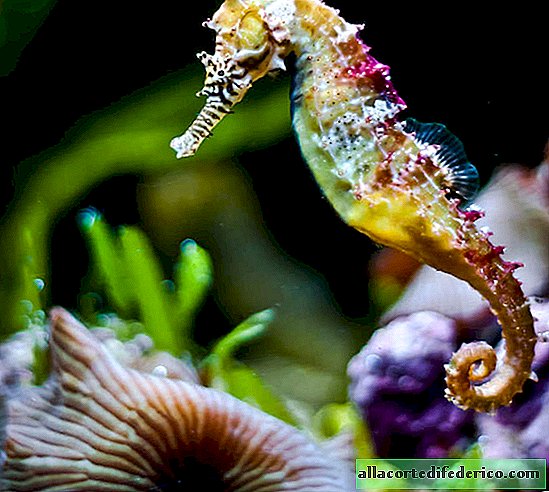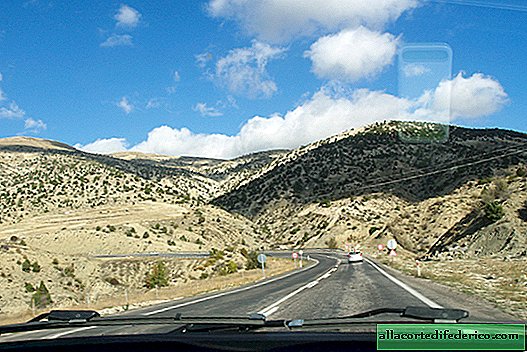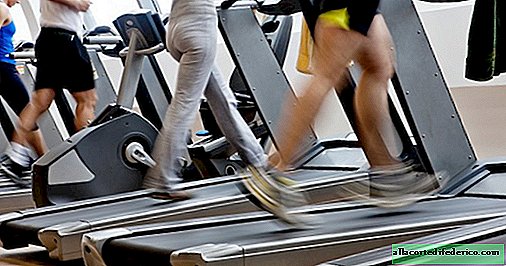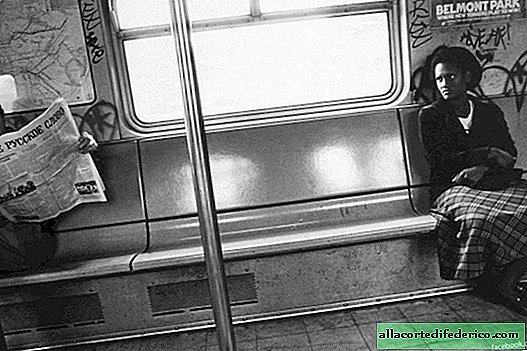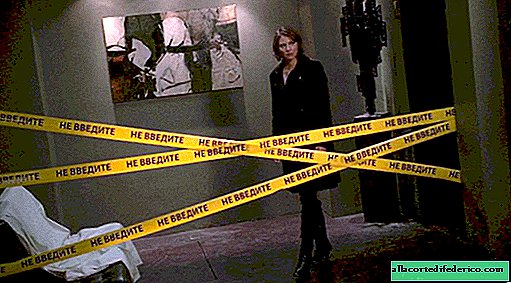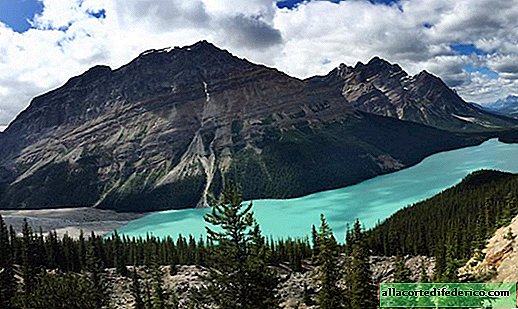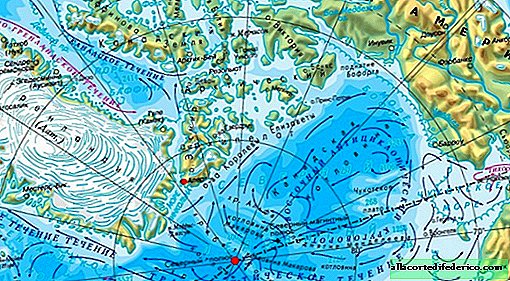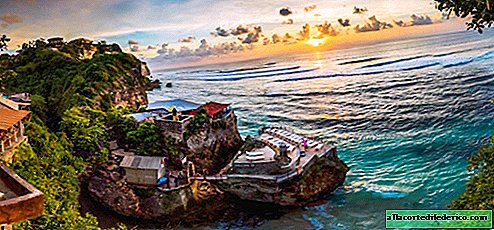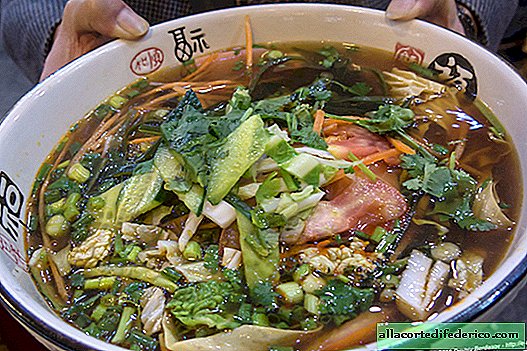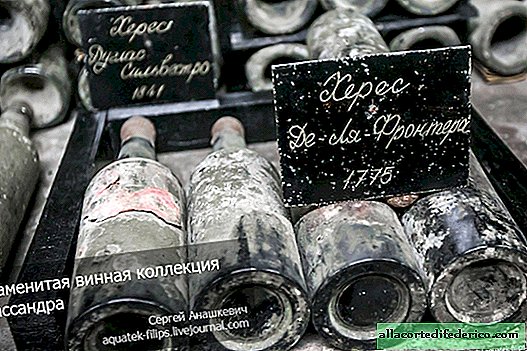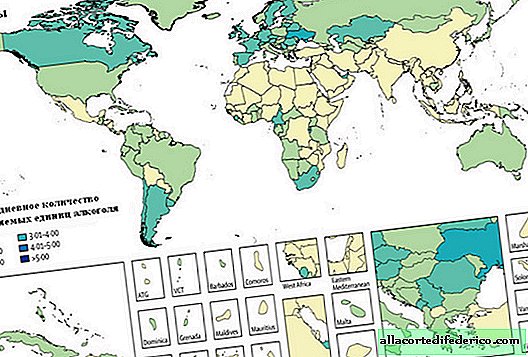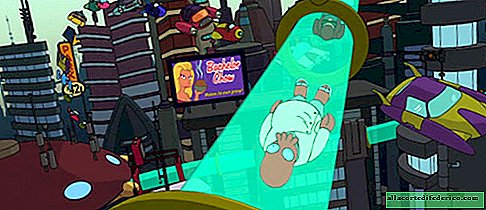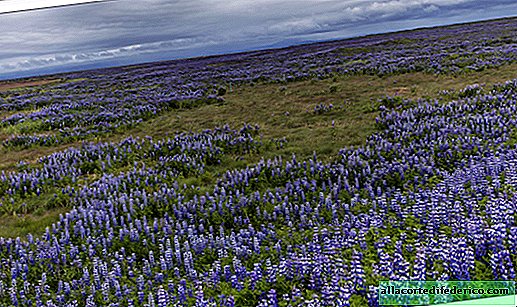Countries where drinking water is hazardous to health
Without water, as they say, there is no need, no syud - "neither shave, nor drink, nor wash, nor swim." No matter where the traveler’s feet lead, he still has to drink. One thing - tourist centers, expensive hotels, and if a thirst for adventure calls into the unknown? Or are you just not a five-star client and a regular traveler?
So that the water does not become "dead", but carries only good, before setting off, it is worth examining the situation with water supply in the host country. Of course, fears first and foremost concern poor and developing countries. But popular tourist destinations, especially Asian ones, also raise questions. Even if you are planning to stay at the best hotel you can find, remember the danger lurking in the water supply.
My guide today is about water and countries where water is not good and you need to be careful.

Detailed information on the state of water resources in different countries of the world is published annually by the non-profit organization Water.org. According to her data, Afghanistan, Chad and Ethiopia are among the three most dangerous countries in terms of water consumption.
Yes, these are not the best destinations for travelers, which is good in this case.
In Afghanistan, only 13% of the population has clean drinking water, and in some areas there is no access to water at all. The Republic of Chad, often prone to droughts and suffering from the food crisis, is in a protracted water crisis. In Ethiopia, with a population of 82 million, only 42% of citizens have the opportunity to drink water daily, and it is not of the best quality. In many settlements, including cities, water is taken in the nearest river. That is why when traveling in Ethiopia, do not drink coffee in outdoor establishments - the water that the barista uses to wash cups may come from a nearby puddle.

The situation is not the best in Ghana, where due to poor water supply and unsanitary conditions, the population suffers from diarrhea and dracunculiasis (a disease caused by parasites that enter the body through water). As well as Rwanda and Bangladesh. In these countries, albeit quite rich in water resources, the extremely unsatisfactory state of the water supply infrastructure is even scary to wash their hands, not to mention drinking tap water.

The listed six states are not the most popular destinations for tourists. But in the top ten countries requiring clean water there are also four, in which the number of independent travelers is only growing.
Cambodia
84% of the population does not have access to clean and safe water. Drinking tap water in the ancient kingdom is strongly discouraged. It is worth pre-stocking enough mineral water so that while admiring the unique temple complex of Angkor Wat, you should not be thirsty. In decent local hotels, given the situation with water supply, there is always a minimum supply of bottled drinking water for tourists: a pair of free bottles in the bathroom and in the minibar.

Laos

India
Let Indian deities help those who want to drink water from the tap, or don’t complain if you spend most of your vacation not on the beaches of Goa, but in the closet. Of course, everything can be attributed to the spicy kitchen, but just curry and other masala can at least slightly protect the traveler from the consequences of a reckless sip of water in the toilet of a roadside cafe. Believe me, even the sugar cane juice that a boy makes on the beach is much cleaner than tap water in this country.

Haiti
Despite all the difficulties, independent travelers craving adrenaline are increasingly sent to Haiti. Many combine a visit to Haiti with a vacation on the beaches of the Dominican Republic, but few are aware that there is a shortage of drinking water in a country washed by the Caribbean Sea and the Atlantic Ocean. Therefore, it is not surprising that the most popular non-alcoholic drinks in Haiti are ordinary drinking water and water with the addition of sugarcane juice - a cracklin drink. The local population, of course, drinks water not only from the tap, but in general which will have to, but it also turns to the voodoo spirits for help. So, if you do not know the effective spells for diarrhea, drink bottled water.

Three tips to clean water at hand
№ 1
The simplest and most effective is to boil. If you know in advance that the water in the country to which you are traveling is unsafe for drinking, check with the hotel if there will be an electric kettle in your room. You doubt its availability? Grab the boiler.
№ 2
Going on a trip, take with you more tablets with activated charcoal. You can drink the tablets yourself if stomach problems begin, or use them as a filter to purify water. To do this, take any clean vessel, pull a piece of cotton or linen cloth on it (a clean T-shirt is also suitable), and pour coal on top. Now, in a thin stream, slowly pour coal from the water supply onto coal. Let the water settle and, in principle, you can drink.
№3
If you have a silver item suitable for travel at home, take it with you. It is great for cleaning water - just put it in a vessel of water. Silver ions are a good bactericidal agent, so water can then be used for drinking, but only if it was not collected in a nearby puddle: silver does not kill parasites, only bacteria.
And finally
I always agitate not to be afraid to try true street food and drinks in different countries, but remember (!), This applies EXCLUSIVELY to food right from the fire, when you see how it is prepared for you, and you are sure that no one touched it with your own hands on which anything can be.

Do not risk drinking any burda that you are treated to in the dark gateways or right in the middle of the shopping street. Otherwise, you will then run head over heels around the hotel in search of toilet paper, or even be "lucky" to get to know the hospital.
Be prudent and have a good trip!

